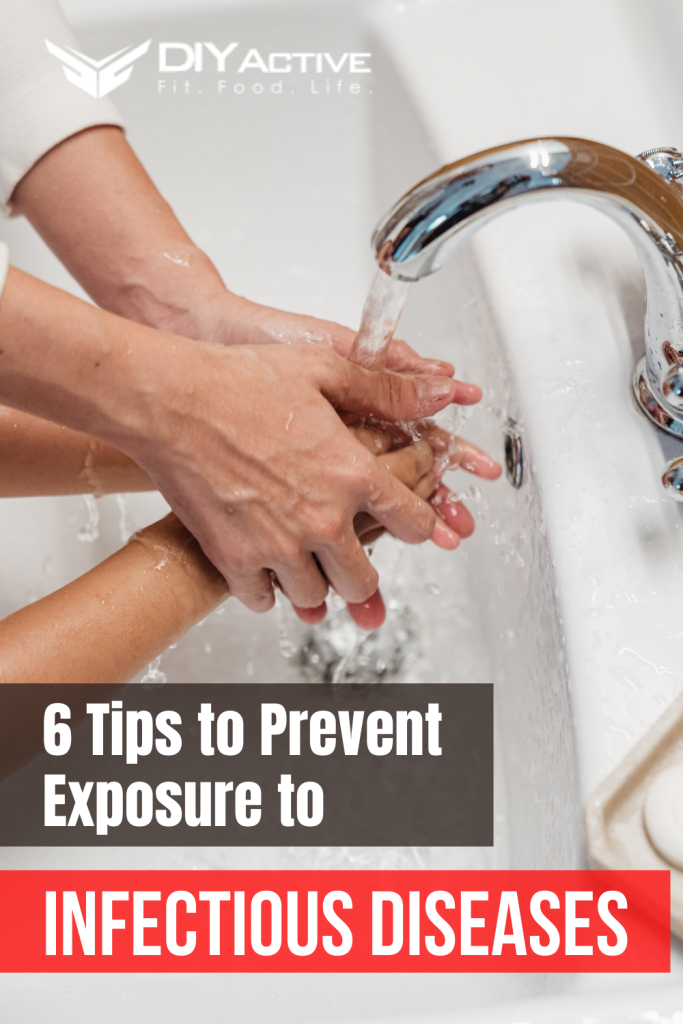6 Tips to Prevent Exposure to Infectious Diseases
Everyone knows how exercise, sleep, and proper diet is vital in maintaining optimal health. Doing these things will help you achieve a stronger immune system. But sometimes, your immune system’s enemy isn’t always visible to the naked eye.
Prevent Exposure to Infectious Diseases
Most of the time, it’s the unseen germs and viruses that put you at risk for infectious diseases. As a result, in addition to leading a healthy lifestyle, you must also take adequate hygiene precautions to protect yourself against bloodborne germs that can cause serious illness.
To start, here are six tips to lessen your exposure to these infectious diseases.
1. Prepare And Handle Your Food Safely
Germs and other bloodborne pathogens aren’t always transmitted through the air or water. It could also be passed on from the food you eat. Thus, you must practice safe food handling to avoid contaminating your meals with bacteria and viruses. Here are some proper food handling tips you need to remember when preparing your food:
- Rinse fruits and vegetables with clean water before slicing, cooking, or eating them.
- Disinfect and wash your kitchen utensils and countertops.
- Refrigerate and store raw meat properly to prevent bacteria from spreading and avoid food poisoning. If possible, store them at the bottom part of the fridge to prevent them from dripping on other foods.
Proper food handling is also essential when you’re outside your home or at work. The importance of training about bloodborne pathogens will help you become more aware of how to handle food and reduce your risk of being exposed to germs and viruses.
2. Wash Hands Regularly

You use your hands to eat, grab on things, open doors or switches, and receive money. And so, you must wash your hands regularly to prevent germs and bacteria from thriving into your hands and spreading into your body.
Some situations wherein you need to wash your hands may include:
- Before and after eating
- Preparing or serving food
- Using the bathroom
- Treating or handling a wound
- Touching an animal
- Disposing or handling garbage
- Handling or counting money
- After sneezing or coughing
It’s also vital that you wash your hands with soap and water thoroughly and adequately for 20 to 30 seconds. If you don’t have direct access to water, you can sanitize your hands to remove and disinfect them from germs and rewash them with soap and water when you get home.
3. Keep Your Items To Yourself
Sharing is beneficial, but it may not apply to all situations. Sharing too many of your belongings with others, especially family members, puts you in danger of transmitting germs and other bloodborne infections.
As a result, avoid sharing products like razors, combs, towels, toothbrushes, old face masks, underwear, and even make-up kits and brushes as much as possible.
4. Regularly Disinfect And Clean Used Surfaces
It’s crucial to regularly clean and disinfect the commonly used surfaces around the house. These may include your kitchen countertops, bathroom, doorknobs, light switches, and so on. You can use soap, water, and vinegar mixture for cleaning and disinfecting.
Meanwhile, you can use rubbing alcohol to disinfect your remote controls, doorknobs, and light switches. It’s also recommended that you disinfect an entire room if someone in the house is sick.
5. Cover Up When You Cough Or Sneeze
Coughing and sneezing are probably the most common ways of transmitting infectious germs and viruses to other people. Every time you cough or sneeze, the air and fluid that comes out of your nose or mouth are filled with disease-causing germs.
These viruses could be transmitted to someone close who breathes in your air, eventually leading to infectious diseases.
As a responsible human, you need to practice proper hygiene when you cough or sneeze. Use a handkerchief or tissue to cover up your nose or mouth before you sneeze or cough.
If you don’t have a handkerchief or towel, you can use your sleeve instead. Furthermore, never use your hands to cover up your nose or mouth as the germs will only land into your hands, making it easier to transmit them to another person or thing.
Lastly, if you know you’re suffering from a cough or cold, have the initiative to wear a face mask, or better yet, stay at home to prevent further exposure.
6. Get Vaccinated
Vaccines were invented for a reason: to strengthen your immune system and protect your body from infectious diseases. That’s why mothers are recommended to have their babies and kids vaccinated at a young age to protect them from illnesses, especially since their immune systems are still underdeveloped.
So, make sure your body is always up-to-date with the required vaccines to keep you safe from dangerous germs.
Wrap-Up
These tips will keep you and your family secure and protected from the hidden infectious illness that may be present in the environment daily.
Also, be sure to combine these tips with a balanced diet, exercise, and lifestyle.